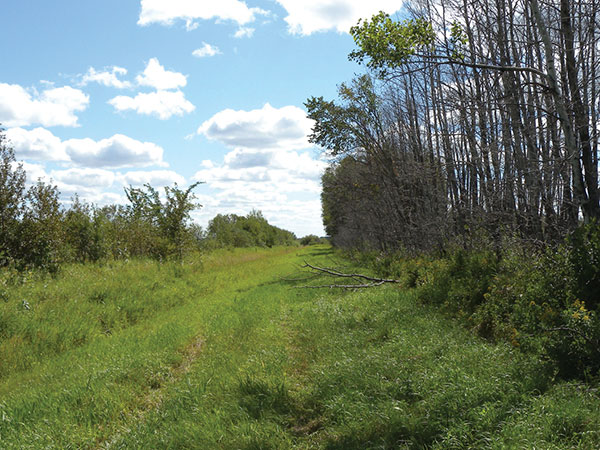Warroad has always taken Independence Day very seriously. While there are numerous memorable 4ths we could mention, we'd like to look at Warroad's celebration exactly one century ago, in 1921. So let's take you back!
 |
| Lake Street, early 1920s |
Women's suffrage is one of the biggest successes of the previous year. The world has just witnessed the dissolution of the Ottoman Empire. Rising popular interest in African-American literature sparks the beginning of the Harlem Renaissance. Prohibition has taken hold in America, and speakeasies replace saloons as the center of social activity. Despite fighting on the frontlines having ended nearly three years before, Congress passes a joint resolution on July 2nd to officially conclude the business of World War I. President Warren G. Harding has just replaced Woodrow Wilson in the White House, though his term is cut short in 1923 upon his death.

In local news, Warroad was coming up on its twentieth anniversary in November 1921. The Warroad Commercial Club began planning for summer events in mid-May of that year. The Commercial Club was an organization open to business owners of the community, and at this time, would likely have only been open to men. The club consisted of prominent business men like Amed Soderstrom, who we have already discussed on this blog as a hotel owner and general businessman around town; C. S. Blevins of the Blevins Meat Packing Plant; Dr. Leo Elliott, a practicing physician out of the early Security State Bank building; Joseph Ault, also mentioned previously in this blog as operator of Hotel Minnesota for many years.
These are just some among many names listed as members of the Warroad Commercial Club in 1921. The early plans for the 4th of July celebration included the organization of a Warroad v. Roseau baseball game, sporting events for the entire community, a performance from the Warroad Independence Band, a powwow with the Native American community, and the planning for fireworks, housing, decorations, and food.
Warroad was not the only one planning to celebrate July 4th a century ago. Oak Island was planning to celebrate itself out on Lake of the Woods. The plans included boat and canoe races, swimming contests, and their own firework display. Folks up at the Northwest Angle also planned to celebrate July 4th on the peninsula. Mrs. C. A. Lockrem is quoted as saying "We are not a dead bunch out here as so many seem to think." (Warroad Pioneer 06/30/1921) That's right, everyone. The people of the Northwest Angle were ready to PARTY!
Roosevelt planned to celebrate on July 2nd, with a community celebration and the unveiling of its soldiers' monument. The Williams Legion and band were expected to perform alongside a performance by local singer Miss Ellen Boyle who regularly sang for the Dominion Theater in Ottawa. Baseball games, miscellaneous races, dancing, and fireworks were all planned for July 2nd. Unfortunately, when the day arrived, the monument did not, meaning the band had nothing to play for, but the other activities sufficed and the fireworks went off without a hitch.
 |
|
 |
The Roosevelt monument, that did not appear until 1922.
|
Warroad's plans for July 4th included a parade led by the American Legion, water sports in the harbor including swimming races, rowing races, a diving contest, and Evinrude boat races. Running, potato, bicycle, and horse races would take place down Lake Street, a tug-of-war contest, and the baseball game between Warroad and Roseau. That night, the American Legion Post #25 would host a dance at the local Masonic Hall, followed by a fireworks display.
As it is wont to do, Warroad found itself drenched with rain showers on the weekend before the 4th of July (a Monday), making for smaller crowds on the day than the community had hoped for. This rain was not unwelcome, however, as the Pioneer noted that 1921 was the longest drought on record in Minnesota. In fact, this was the first year of what would turn out to be the longest and worst drought experienced by Minnesota in recorded history. The drought lasted from 1921–1942 and affected the entire state (MDNR, "Minnesota Floods and Drought").
The baseball game against Roseau "was not definitely won until the first half of the ninth was over," with Roseau taking the lead only at the very end. The pitcher, last name Steen, was noted as having been struck by the ball, with Fred Schultz taking over for him. Clarence Green hit the first home run of the town team's 1921 season.
 |
| Clarence Green |
 |
| Warroad Town baseball team, late 1910s |
Fun was had by all during the community events. John Lawson took first in the bicycles races while Max Jones outran all his competitors in the boys' track race. The town water polo team led by Joseph Guibault, Milton Moorhead, and George Jaros came out victorious, while Erick Starren won the rowing races. Mrs. Zippel and Miss Wahlberg swamped the competition in the Evinrude races up Warroad harbor.
 |
| Early Evinrude advertisement |
The Warroad Pioneer declared the day a success, and we hope that a century later we can say the same. From all of us at the Warroad Historical Society, we hope your 4th of July is warm, happy, and safe.
~ Erin Thompson, Museum Manager
Cited: MN Department of Natural Resources, "Minnesota: Floods and Drought," National Weather Summary 1988–89—Floods and Droughts: Minnesota (1989), https://files.dnr.state.mn.us/natural_resources/climate/summaries_and_publications/minnesota_floods_and_drought.pdf.





















.jpg)

Comments
Post a Comment